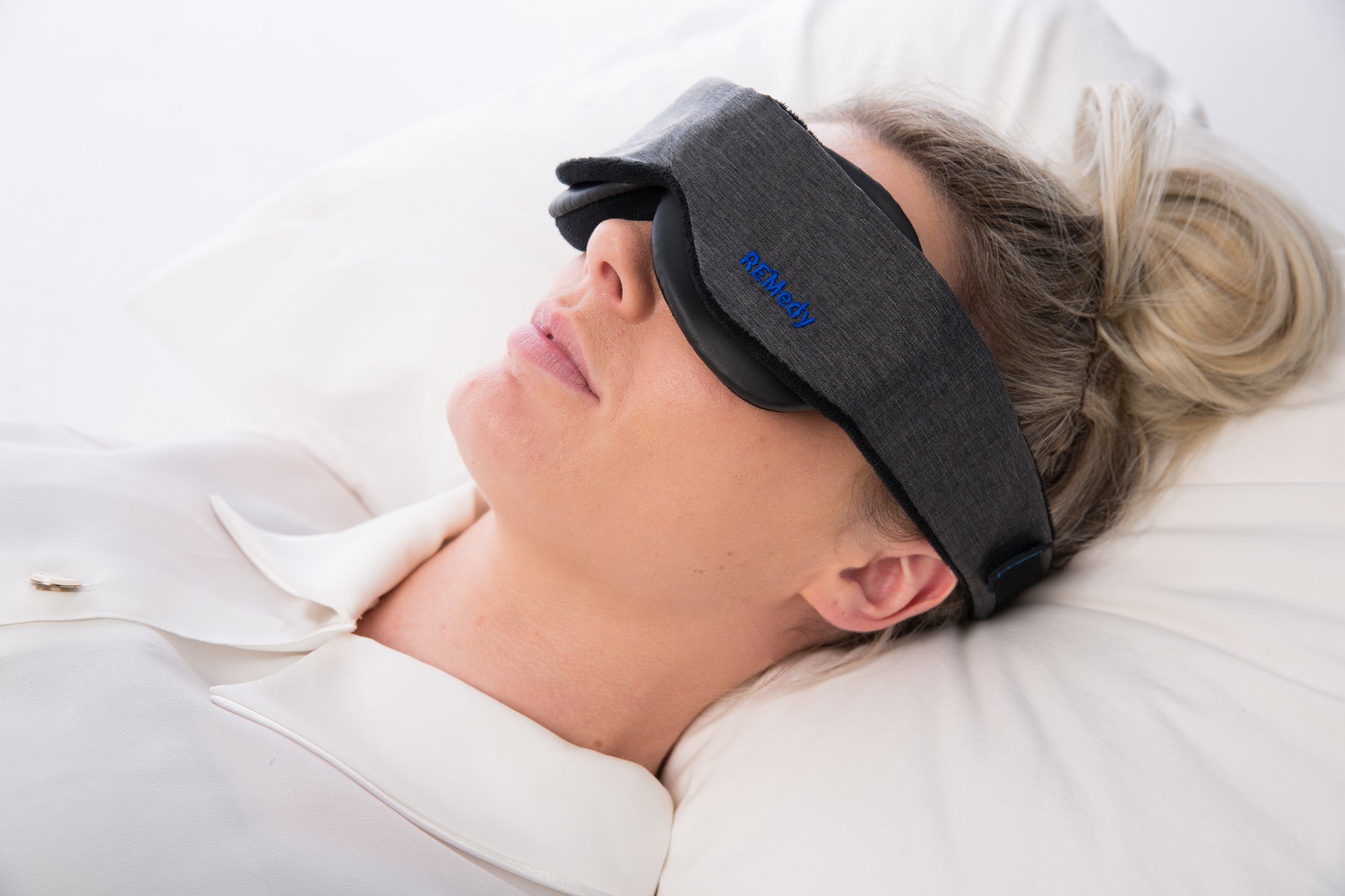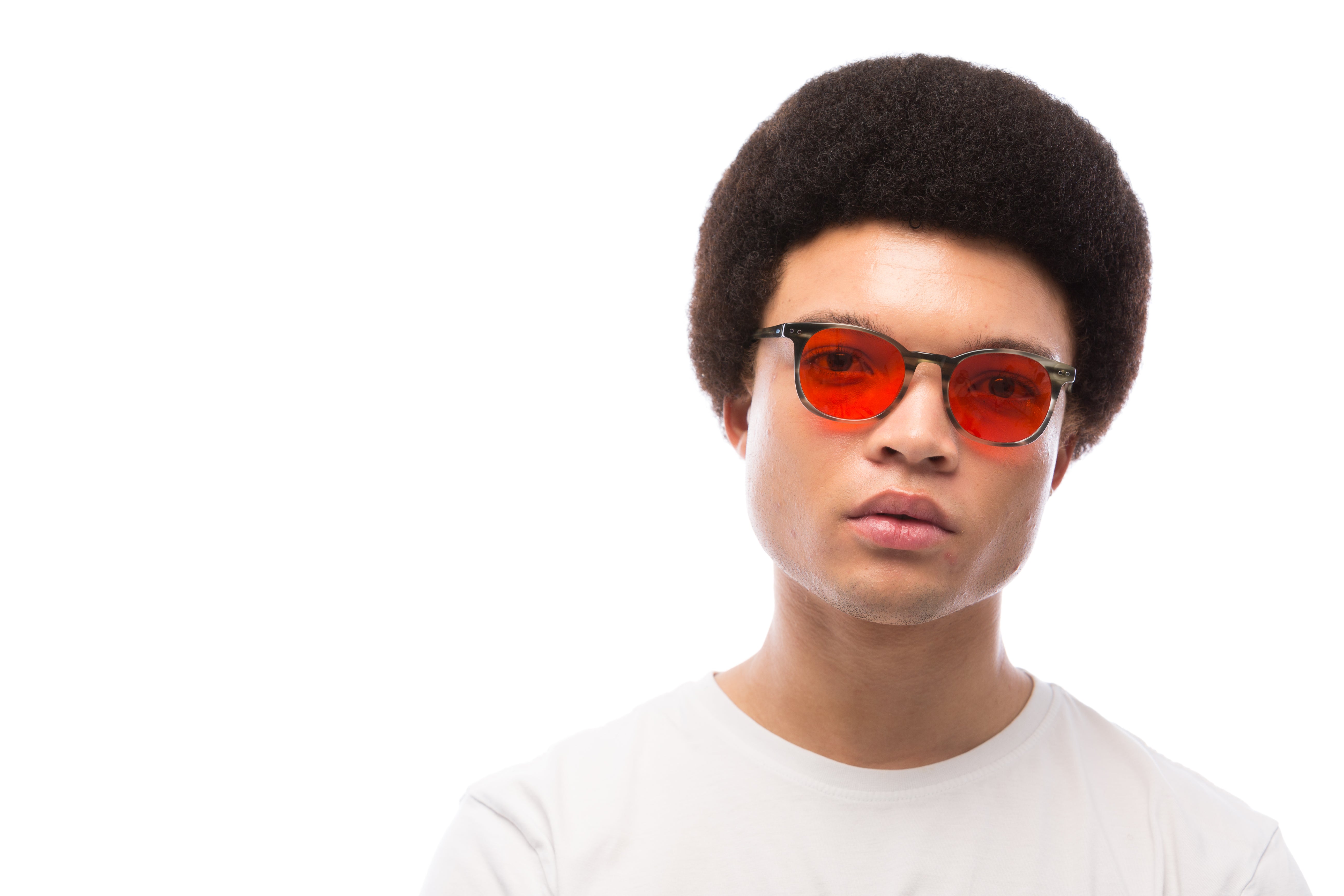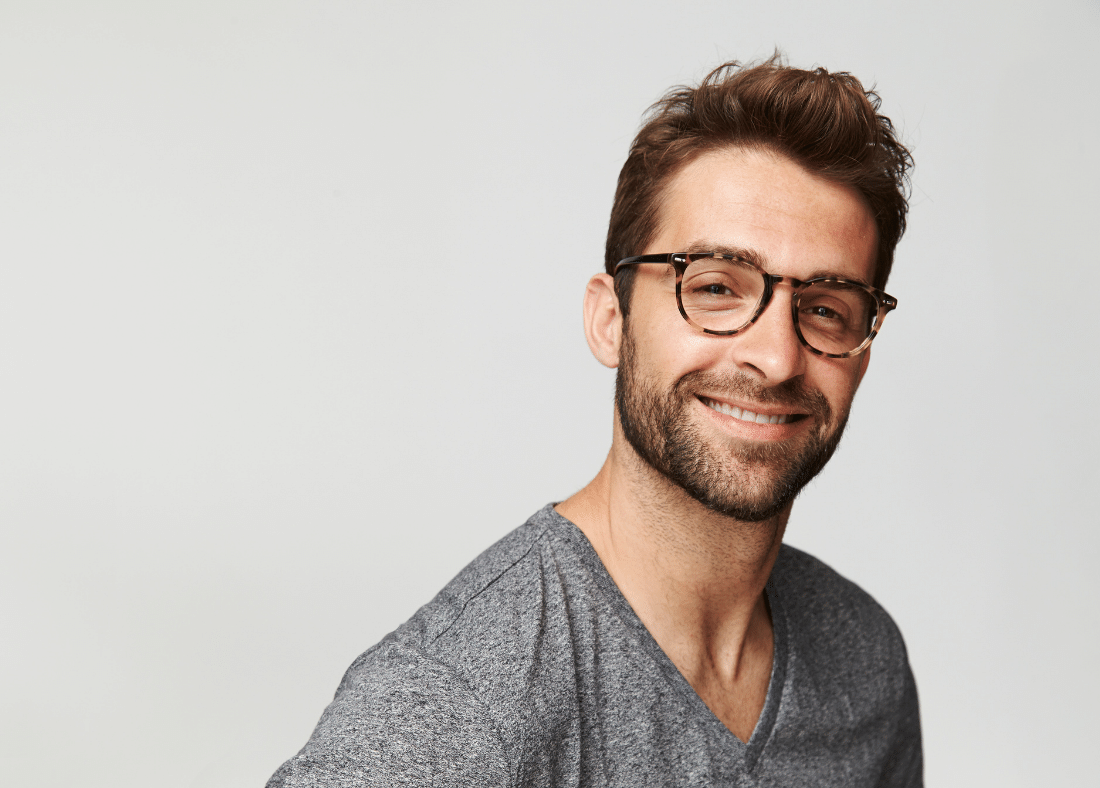Do Blue Light Glasses Work?
Andy MantThere are a plethora of articles written that indicate blue light glasses do not work. However, there is always two sides to every argument. In this article we present the scientific evidence that indicates that blue light glasses work to protect your eyes from the damaging effects of harmful blue light.
The Dark Side of Blue Light
Blue light is high energy visible light. Blue light is found in back lit digital devices, home and office lighting and televisions. We are spending more time in front of a screen, which is increasing our exposure to artificial blue light. Increase in screen time and blue light exposure has been shown to disrupt your sleep and cause eye light damage.
Blue light has been shown to disrupt your sleep, circadian rhythm, as well as general eye health. Blue light has been shown in scientific studies to induce certain mild eye conditions and negatively impact your quality of sleep. Sleep is essential for optimal human health and anything that disrupts our sleep cycles should be analysed and addressed accordingly.
Blue light emitting devices can be detrimental for our wellness and we need to take measures to protect ourselves from the dangers of harmful blue light. Sitting in front of a digital screen all day can lead to computer vision syndrome which can reduce our productivity.
Scientific Studies Show Blue Light Glasses Work
Whilst many articles indicate blue light glasses don’t work, we have found some compelling evidence to suggest they do work.
In 2018 a study was released called "Removal of the blue component of light significantly decreases retinal damage after high intensity exposure”. This study concluded that:
The use of blue-blocking filters can significantly reduce digital eyestrain. Blue light glasses might be an effective mechanism to protect us from digital eye strain.
Eye diseases aside, which should be addressed with your medical practitioner, blue light induced digital eye strain can be extremely problematic.
Symptoms of digital eye strain include dry eyes, headaches and fatigue which comes about as a result of exposure to blue light. The symptoms also occur from other aspects of screen use, such as staring too long, lack of blinking, etc.
This study in 2014 adds to the increasing body of literature that suggest blue light glasses work. The study results are summarised below:
Use of blue light-blocking glasses in the evening can reduce melatonin suppression before sleep. Blue light glasses have the potential to reduce the negative effects modern lighting
A study in 2016 study provides evidence that blue light glasses work at significantly improving sleep quality. The authors concluded that:
Sleep quality is significantly better in healthy adults after using the blue light glasses

Blue light blocking glasses have also been shown to be effective for night shift workers in academic circles. This study in 2009 said:
Blue light glasses improve daytime sleep of permanent night-shift workers
Sleep, time and time again, has been shown to dramatically improve by wearing blue light glasses. The study entitled “Blocking nocturnal blue light for insomnia” A randomised controlled trial” concluded that:
Amber lenses compared to clear lenses improve sleep

Other Techniques to Minimise Blue Light Exposure
Blue light glasses have been shown in studies to work against digital eye strain, computer vision syndrome and improving sleep. However, there are also some other measures you can take to reduce you exposure to artificial blue light.
20-20-20 Rule
Every 20 minutes take a 20 second break to stare at an object around 20 feet away. This will help give your eyes a break from blue light from screens.
Get Outside More
Being outside allows your eyes and body to get more red light which is a restorative frequency of light. This helps balance out the harmful effects of blue light exposure.
Take Regular Screen Breaks
Having a 5 minute break from screen use every hour is a good measure at reducing the amount of blue light exposure.
The Best Blue Light Glasses
The best blue light glasses are ones that work in line with the supporting science. During the daytime you need to wear a pair of clear lens computer glasses if you want to alleviate the symptoms of digital eye strain. Finding a pair of computer glasses that filters blue light across the entire blue spectrum is essential.
If you suffer from photophobia, which is a sensitivity to blue light you may wish to block more blue light that clear lens computer glasses. By wearing a pair of yellow lens Light Sensitivity Glasses you can help relieve symptoms of photophobia which include migraine headaches, dry eyes and fatigue.
In the evening we have provided evidence that blue light must be blocked in order to get the best night's sleep. By blocking blue and green light found between 400nm and 550nm you can improve melatonin production and get a better quality night's sleep.
Many glasses with amber lenses claim to block 100% of blue light but when tested they do not. its is therefore paramount to invest in a pair of blue light blocking glasses that block all blue light and most green light if you want a pair of blue light glasses tat work properly.
The frequencies of light we are exposed to across a 24 hour period change. It is essential to not rely on just one pair of blue light glasses during this period as they won't work as effectively as you would like. Ensure you choose a daytime pair of blue light glasses and a pair of blue light blocking glasses to use post sunset.
Conclusion
This article in the American Academy of Ophthalmology concludes that blue light glasses do not work. However, this article you have just read provides evidence that blue light glasses work.
Further Reading
Do Blue Light Glasses Help with Headaches?
Can Blue Light Glasses Damage Your Eyes?
Can You Wear Blue Light Glasses With Contacts?
10 Reasons You Need to Wear Blue Light Glasses
How to Tell if Glasses are Blue Light
This article is for informational purposes only. Light Sensitivity Glasses are registered with FDA for general wellness purposes. Light Sensitivity Glasses are not intended to treat, cure, or prevent any disease




